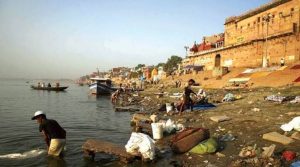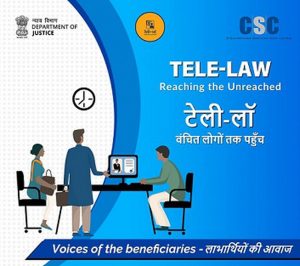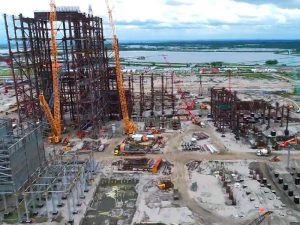Today Current Affairs: 7th July 2021 for UPSC IAS exams, State PSC exams, SSC CGL, State SSC, RRB, Railways, Banking Exam & IBPS, etc
Table of Contents
Policy Document On The Conservation Of River Ganga.:

National Mission for Clean Ganga has released a policy document on the conservation of river Ganga.
Highlights of the policy:
- Cities situated on Ganga river banks will have to incorporate river conservation plans when they prepare their Master Plans.
- These “river-sensitive” plans must be practical and consider questions of encroachment and land ownership.
- There is a need for a systematic rehabilitation plan for such encroaching entities that emphasizes alternative livelihood options in addition to a relocation strategy.
- The Master Plan shouldn’t mandate specific technologies, but it can “create an environment” for facilitating the use of state-of-the-art technologies (without naming the providers) for river management.
- The recommendations are currently for towns that are on the main stem of the river Ganga. There are 97 of them encompassing 5 States — Uttarakhand, Uttar Pradesh, Bihar, Jharkhand, West Bengal.
About the National Mission for Clean Ganga (NMCG):
- It was registered as a society on 12th August 2011 under the Societies Registration Act 1860.
- It acted as the implementation arm of National Ganga River Basin Authority(NGRBA) which was constituted under the provisions of the Environment (Protection) Act (EPA),1986.
- Please note, NGRBA was dissolved with effect from the 7th October 2016, consequent to the constitution of the National Council for Rejuvenation, Protection and Management of River Ganga (referred as National Ganga Council).
The Draft Cinematograph (Amendment) Bill 2021::

The Standing Committee on Information and Technology has conveyed its discontent to the Ministry of Information and Broadcasting on the “super censorship” clause introduced in the draft Cinematograph (Amendment) Bill 2021.
Cause of concern:
- In the draft, there is a provision which allows the government to order recertification for a film already certified by the Central Board of Film Certification (CBFC).
- The government says the clause would only be invoked if the content of a film impinged on security and integrity of the nation.
Key Provisions in the draft bill:
- Age-based certification: It seeks to introduce age-based categorisation and classification. It proposes to divide the existing categories (U, U/A and A) into further age-based groups: U/A 7+, U/A 13+ and U/A 16+.
- Provision against piracy: At present, there are no enabling provisions to check film piracy. Violation shall be punishable with imprisonment and fine.
- Eternal certificate: It proposes to certify films for perpetuity. Currently a certificate issued by the CBFC is valid only for 10 years.
Recusal Of Judges:

The Calcutta high court has imposed a penalty of ₹5 lakh on West Bengal chief minister Mamata Banerjee for seeking recusal of Justice Kaushik Chanda from her Nandigram election petition over the judge’s alleged links with the Bharatiya Janata Party (BJP).
- The court said the amount paid in penalties by the West Bengal CM will be used for the families of lawyers affected by Covid-19.
- The judge, however, decided to step away from the case on his own personal discretion and released the case from his bench.
- Judicial disqualification, referred to as recusal, is the act of abstaining from participation in an official action such as a legal proceeding due to a conflict of interest of the presiding court official or administrative officer.
Grounds for Recusal:
- The judge is biased in favour of one party, or against another, or that a reasonable objective observer would think he might be.
- Interest in the subject matter, or relationship with someone who is interested in it.
- Background or experience, such as the judge’s prior work as a lawyer.
- Personal knowledge about the parties or the facts of the case.
- Ex parte communications with lawyers or non-lawyers.
- Rulings, comments or conduct.
There are no definite rules on recusals by Judges.
- However, In taking oath of office, judges, both of the Supreme Court and of the high courts, promise to perform their duties, to deliver justice, “without fear or favour, affection or ill-will
Open Network For Digital Commerce:

The Department for Promotion of Industry and Internal Trade (DPIIT) has issued orders appointing an advisory committee for its Open Network for Digital Commerce (ONDC) project that is aimed at curbing “digital monopolies”.
- This is in the direction of making e-commerce processes open source, thus creating a platform that can be utilised by all online retailers.
- Earlier, the Ministry of Consumer Affairs released draft e-commerce rules for consumer protection which seek to bring changes to how e-commerce marketplaces, including Amazon and Flipkart, operate after small businesses complained that they misuse market dominance and deep-discounting to gain an unfair advantage.
- The ONDC aims at promoting open networks developed on open-sourced methodology, using open specifications and open network protocols, independent on any specific platform.
- The project to integrate e-commerce platforms through a network based on open-source technology has been tasked to the Quality Council of India.
- Implementation of ONDC, which is expected to be on the lines of Unified Payments Interface (UPI) could bring various operational aspects put in place by e-commerce platforms to the same level.
- Various operational aspects include onboarding of sellers, vendor discovery, price discovery and product cataloguing etc.
- On ONDC, buyers and sellers may transact irrespective of the fact that they are attached to one specific e-commerce portal.
- If the ONDC gets implemented and mandated, it would mean that all e-commerce companies will have to operate using the same processes (like Android Based Mobile Devices).
- This could give a huge booster shot to smaller online retailers and new entrants.
- If mandated, this could be problematic for larger e-commerce companies, which have their own processes and technology deployed for these segments of operations.
- ONDC is expected to digitise the entire value chain, standardise operations, promote inclusion of suppliers, derive efficiency in logistics and enhance value for consumers.
Grand Ethiopian Renaissance Dam’s (GERD):

Ethiopia has started the second phase of filling a Grand Ethiopian Renaissance Dam’s (GERD) reservoir on the upper Blue Nile, which raised tensions from Sudan and Egypt ahead of an upcoming UN Security Council meeting on the issue.
- Ethiopia had previously announced it would proceed to the second stage of filling in July, with or without a deal.
- The Nile, Africa’s longest river, has been at the center of a decade-long complex dispute involving several countries that are dependent on the river’s waters.
- Ethiopia began the construction of the GERD in 2011 on the Blue Nile.
- This 145-meter-tall hydropower project is Africa’s biggest dam project and will have lasting impacts on its longest river- Nile.
- Blue Nile is a tributary of the Nile river and it carries about two-thirds of the river’s water volume and most of the silt.
- Egypt, which lies downstream, has objected to the construction of the dam and proposed a longer timeline for the project.
- It does not want the water level of the Nile to dramatically drop as the reservoir fills with water in the initial stages.
- Sudan has also been involved due to its location.
- The Nile is an important water source in the region so there are concerns that this dispute may evolve into a full-fledged conflict between Egypt and Ethiopia.
- Recently, the USA has stepped in to mediate.
Tele-Law Programme.:

Justice Department commemorates the milestone of crossing 9 lakh beneficiaries under its Tele-Law programme.
- The programme connects the disadvantaged and needy seeking legal advice from Panel Lawyers through e-interface platform available in Common Service Centres(CSC).
- Tele–Law began its humble journey in 2017 by covering 170 districts in 11 States through 1800 CSCs. In 2019, 115 Aspirational Districts were added taking the number of CSCs to 29,860.
- Tele-Law programme is presently operational in 633 districts (including 115 Aspirational Districts) across 34 States/UTs through a network of 50,000 CSCs.
- Tele-Law saw a surge of 369% growth in number of beneficiaries seeking legal advice during last one year during the Covid Pandemic.
- Even though Tele-law programme is technology driven, its success is dependent on the working of field functionaries comprising of Village Level Entrepreneurs(VLEs), Para Legal Volunteers (PLVs), State Coordinators and Panel Lawyers.
Maitree Power Project:

Secretary (Power) Govt of India met Secretary (Power) Govt of Bangladesh for the issues related to 1320MW Maitree Power project.
- The Maitree super thermal power project is a 1,320MW coal-fired power station under construction in Rampal, Bangladesh.
- It is located at Moithara, Rampal, in the Bagerhat district, approximately 23km south-east of the Khulna city, Bangladesh. The coal-fired facility is being developed on a 1,834acre-site on the bank of Passur River in south-west Bangladesh.
- The power plant is being developed by Bangladesh India Friendship Power Company (BIFPCL), a 50:50 joint venture between India’s state-run National Thermal Power Corporation (NTPC) and Bangladesh Power Development Board (BPDB).
- Construction on the Rampal power plant was started in 2017. The first unit of this project would be commissioned in December’ 2021 i.e. coinciding with Golden Jubilee celebration of Victory Day of Bangladesh
- The project is an environmentally friendly supercritical technology based thermal power plant.
White Flag Campaign:

In Malaysia, some residents of low-income families have started waving white flags as part of the so-called “White Flag Campaign”, or the #benderaputi (white flag) movement.
- They are doing this to convey distress about the financial crunch they have had to deal with amid the lockdowns due to Covid-19. Malaysia enforced another lockdown on June 1 in order to control another surge of Covid infections.
- As part of the movement that was initiated last week, families that are facing hunger or need any other kind of assistance are encouraged to wave a white flag or put a piece of white cloth outside their homes to signal that they need help.
- The idea is that by spotting the white flag, neighbours and good samaritans can reach them.
Black flag movement:
- Alongside the white flag movement, there is the black flag movement as well, in order to express dissatisfaction with the Malaysian government.
- Specifically, this movement is demanding that Prime Minister Muhyiddin Yassin resign.
Lambda Variant of Covid-19:

Even as the Delta variant of the SARS-CoV-2 coronavirus continues to drive the rise in infections around the world, another variant, Lambda, is increasingly being seen by scientists and health experts as a new emerging threat.
- On June 14, the World Health Organization designated the Lambda variant, previously known by its formal scientific name C.37, as the seventh and newest “variant of interest”, meaning it was something to watch out for.
- Like the Delta variant, the Lambda variant, which has now been detected in more than 25 countries, is feared to be more transmissible than the original virus.
- It has been the dominant variant in Peru and other countries of South America.
‘Ministry Of Co-operation’:

In a historic move, a separate ‘Ministry of Co-operation’ has been created by the NDA Government for realizing the vision of ‘Sahkar se Samriddhi’.
- This ministry will provide a separate administrative, legal and policy framework for strengthening the cooperative movement in the country.
- It will help deepen Co-operatives as a true people based movement reaching upto the grassroots.
- The Ministry will work to streamline processes for ‘Ease of doing business’ for co-operatives and enable development of Multi-State Co-operatives (MSCS).
- Creation of a separate Ministry for Co-operation also fulfils the budget announcement made by the Finance Minister.




